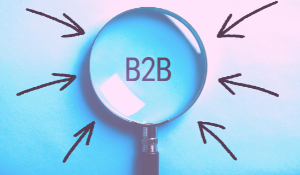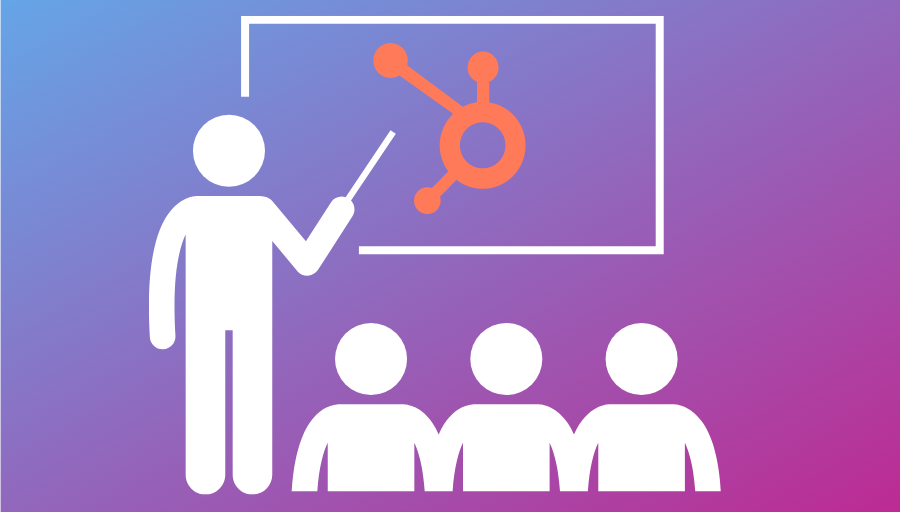This is a question we've been hearing a lot more lately - is HubSpot any good for startups and small businesses?
It makes sense - HubSpot is often thought of as a big, expensive platform, so it's important to understand whether or not it's right, and more importantly, good, for your business. Because if you've just done a funding round, you may need to justify your spend.
The short answer is that yes, HubSpot is absolutely good for start-up and small businesses. In fact, we'd go as far as to say it's fantastic for them. Of course, you'll want to know why, so let's look at the detail, including HubSpot's special offer to support startups...
HubSpot for Startups
You may qualify for discounts
That's right, HubSpot has start-up-friendly pricing available. You may be able to apply for between 30% and 90% off the standard pricing in your first year (with reduced but ongoing discounts in the years that follow, so you don't ramp straight up to the full price). At the top end, that would mean you could get the Professional hubs for the price of the Starter hubs usually.
To be eligible for HubSpot for Startups, you need to be a current or alumni member of one of the thousands of approved incubator, accelerator, Venture Capital, or entrepreneurial partners on HubSpot's list. There are over 3,200 approved partners on that list, so it's very broad reaching.
The discount you can get is based on where you are in your business journey, how much funding you have received, and which type of partner you're involved with.
We're more than happy to help you apply, and have successfully got a number of our clients on the HubSpot for Startups programme.
Plus there are additional services available
There are also additional benefits to being part of HubSpot for Startups, including things like Stripe payment credits, free and heavily discounted products like teamwork, QuarterOne forecasting, Insycle data cleansing, and more.
You can start small
If you qualify for HubSpot for Startups, then this section won't be as relevant, but if you don't, well then you definitely need to read on.
How does a free platform sound? And we're not just talking about a cut-down, barely functional platform. We're talking about the full CRM (every business needs one, no matter your size), plus a heap of functionality on top, including:
- Email marketing (yep, it's in the free version)
- Landing pages
- Live chat and chat bots
- Forms
- Ad Management
If you have a small budget, you might opt for Marketing Starter, which gives you greater limits on your activities, plus additional functionality and access to HubSpot's technical support team.
There are some limitations on number of email sends, number of custom properties, and so on, so if you have some funding to invest in your marketing, the next level is likely to be more suitable for you...
You can grow
If you're starting out with some funding, or you've grown and now have a budget to put behind your marketing platform, HubSpot has even more to offer.
The Professional Hubs add collaboration tools, email comparison reporting, Account Based Marketing tools, automation, lead scoring, sales analytics, sequenced emails, content and topic clusters, CTAs, A/B testing, forecasting, dynamic personalisation, social media tools, and plenty more advanced features.
As you grow, your marketing should grow and get more and more sophisticated. HubSpot helps you do that - the Enterprise Hubs add even more functions, like custom objects, playbooks, single sign on, custom behavioural events, partitioning, and multi-touch revenue attribution reporting.
The tiered system means you're not paying over the odds for functionality that you're not ready for yet.
You don't need a degree to work it
Some marketing platforms are huge and complicated creatures - which is perfect for some users/businesses and overkill for others. If you're a startup, you might be looking for something that won't take a huge amount of time to get to grips with.
HubSpot is designed to be user-friendly. Like any software, it still has a learning curve, but in comparisons with other marketing automation platforms, it generally scores higher for usability/ease of use. That's because it has all been built by HubSpot to work together, rather than consisting of different software acquisitions bolted together.
Particularly if you don't have a whole team of in-house marketers, this means it's easier to get up and running and do what you need to.
And, as a startup, you have the benefit of setting it up just the way you need to for your business, so that it grows with you.
It saves time
Time is money, and startups are often working with achieving as much as possible for as little as possible - either you haven't got a lot of cash, or you have funding that needs to be justified and deliver a return on investment.
So, not wasting time is important. The challenge with digital marketing is that you can find yourself flitting between a dozen different systems or platforms in order to do everything, and then spending hours on reporting trying to tie everything up.
Using an integrated platform, like HubSpot, means you're only doing things from one place - your sales emails and marketing emails are in the same system. You don't have to move between Facebook, LinkedIn, and Twitter (or Hootsuite/Tweetdeck) to schedule your social media. You don't need to go off and log into your ad accounts, analytics, and lead pages each time you want to publish assets for a new campaign.
Even better, you can report on it all in one place.
You get usable data across sales and marketing
Talking of reporting all in one place - one of the huge benefits of an integrated platform like HubSpot is that all customer, prospect, contact, company, and deal information is stored in the same place as your marketing and sales activities.
So, you know if someone came to you from social media, or through an outreach email from your sales team, or your website. You also know if they downloaded anything, consumed content, watched videos, sent you emails or Facebook messages. You can analyse your marketing activities with tangible metrics, like leads generated, conversion to customers, and revenue, rather than vanity metrics like reach or likes.
This is important for any business, but if you're justifying your investment in marketing and sales to your investors, then having data you can rely on, that covers the whole mix, is invaluable.
Without it, you're back to creating spreadsheets from loads of different software providers (like your email provider, your CRM, your social media accounts, and so on), which never quite follows the entire path through your funnel.
You get tonnes of resources
We've talked about the HubSpot Academy plenty of times before, but the really useful thing about it is that it's not just about using HubSpot itself.
You can do courses and lessons across marketing tactics, SEO, writing skills, sales skills, and plenty more. So, if you're starting out and need some training on marketing in general, you've got dozens of courses right there waiting for you.
There are, of course, plenty of courses specifically about using HubSpot, plus you have the Knowledgebase with tonnes of step-by-step explanations, and access to the HubSpot Community, where you can start a post and ask questions.
In all, you can get a lot of value from the free resources available - perfect when you're a startup (and still great as you grow).
What are the downsides?
HubSpot is a great tool, but it's not perfect for every business at every stage. HubSpot for Startups gives you a huge opportunity to get significant discounts on a powerful platform, but it's only effective if you use it.
- So, if you don't have time, resource, or capacity to use it, it's not going to be much help to you, and even at a discount, there's not much point.
- If you don't know your business goals and what you want to accomplish for your marketing, you may not be ready yet.
- If your whole team isn't bought in, it can be an uphill struggle. If sales don't track and update their deal pipelines, you won't have data you can rely on (which means you'll be heading back to spreadsheet land and losing a real benefit). If marketing aren't interested in using the tools available, your time savings go out the window along with your reports.
- Pricing is often cited as one of the downsides of HubSpot - of course, if you're on HubSpot for Startups pricing, that shouldn't be an issue, especially with ongoing (albeit reducing) discounts after your first year. By the time you get to full price, your business should have grown far past that being a consideration, but it would be remiss not to mention in.
Like any tool, if you don't use it, it's not worth it. The trick is getting everyone onboard and using HubSpot from the start. That's generally easier as a startup, before other habits become embedded and hard to change, but if your team won't come with you on the journey, you'll struggle to get the benefit of an integrated platform.
If you're still weighing up the pros and cons, we're happy to have a no-obligation chat to look at your specific business needs.





